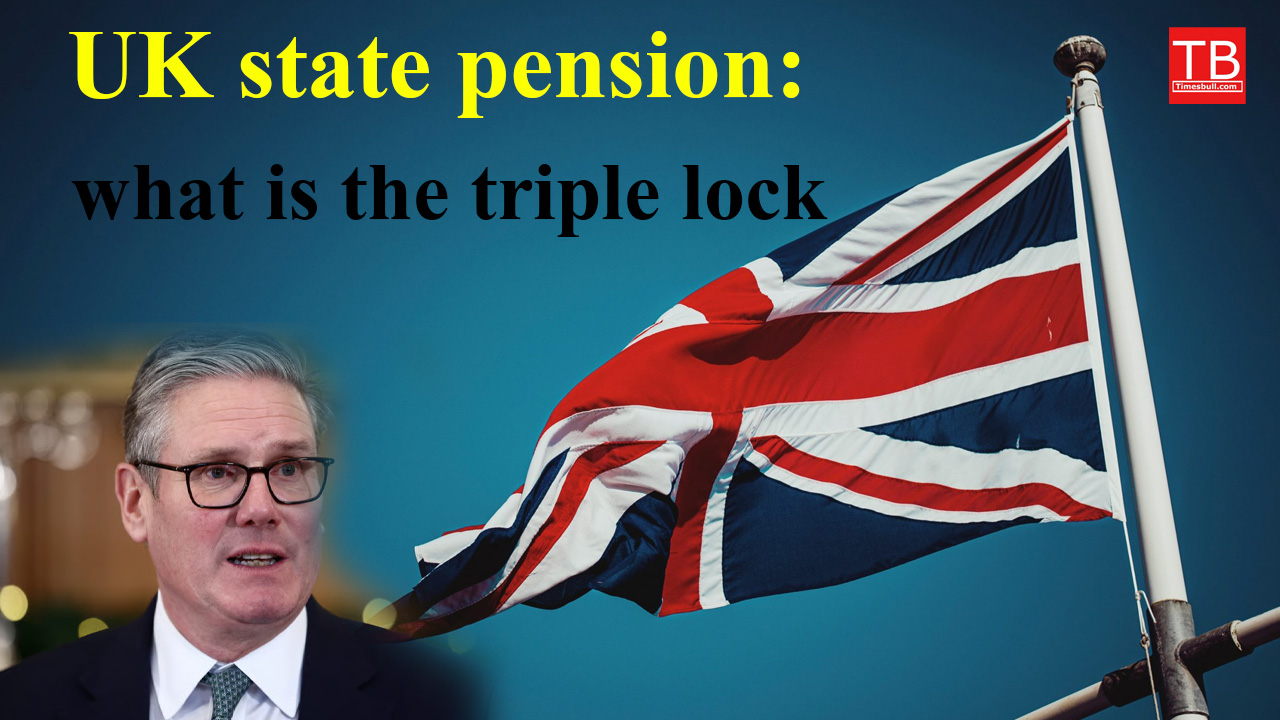The UK’s full new State Pension could rise by around £11 per week next April, bringing it to £241 per week or £12,534 per year, according to the latest pay rise data. This increase falls under the government’s triple lock policy, designed to protect pensioners’ income from inflation and wage fluctuations. If confirmed, this 4.7% increase would equate to an additional £560 annually.
While this rise is welcome for pensioners, it also raises questions about the cost of the triple lock and its impact on the tax-free personal allowance (£12,570).
What is the Triple Lock?
The Triple Lock system, introduced in 2011, ensures that the State Pension receives a maximum increase each April, based on one of the following three measures:
-
Inflation – based on the Consumer Price Index (CPI) in September of the previous year
-
Average wage growth – based on the period from May to July of the previous year
-
2.5% – as a minimum guarantee
Google £5B AI Investment in UK to Boost Tech Growth, Jobs & US-UK Partnership
This system protects pensioners’ income from rising prices or stagnant wages.
Who Receives the State Pension?
According to the Department for Work and Pensions, there are approximately 13.1 million State Pension holders in the UK. Most of these (around 8.4 million) receive the old Basic State Pension, available to:
-
Men born before April 6, 1951
-
Women born before April 6, 1953
Old Basic State Pension: £176.45/week
New Full State Pension: £230.25/week
The old system also allowed for additional payments through National Insurance contributions, such as the State Earnings-Related Pension Scheme (SERPS) or State Second Pension, which could provide more than £200/week on top of the basic pension.
Expected Growth from Next April
According to the National Statistics Office, earnings grew by 4.7% between May and July 2024. September inflation figures are expected to be similar. If implemented, the increase would be:
-
Basic State Pension: £184.75/week (£9,607/year)
-
New State Pension: £241.05/week (£12,534/year)
The government is expected to confirm the final increase before the budget on November 26, 2024.
Is the Triple Lock Controversial?
The Triple Lock has been debated for its fairness and cost:
-
Critics say it disproportionately benefits the elderly, pressures younger generations, and strains government finances. Costs have tripled since initial estimates.
-
Supporters argue it is essential to protect pensioners, many of whom lack workplace pensions or adequate retirement savings. Surveys show the State Pension is often the sole income for many retirees.
The government has promised to maintain the Triple Lock during this parliamentary term, though discussions may continue regarding adjustments based on income growth or inflation.
Tax Impact
Some pensioners may soon have to pay income tax on their State Pension, especially as pensions approach the frozen personal allowance. By April 2027, only those dependent on the new State Pension may become taxpayers, which could fuel further debate about the Triple Lock’s cost and impact.
Frequently Asked Questions
-
Q: What is the Triple Lock in the UK State Pension?
A: It guarantees that the State Pension increases each year according to the greater of inflation, average wage growth, or 2.5%. -
Q: How much will the UK State Pension increase in 2025?
A: The New State Pension is expected to rise from £230.25 to £241.05 per week, about £11 per week. -
Q: Who is eligible for the New State Pension?
A: Men born after April 6, 1951, and women born after April 6, 1953. -
Q: How many people receive the State Pension?
A: Around 13.1 million people. -
Q: Is the Triple Lock permanent?
A: Critics say it may be financially challenging long-term, while supporters see it as essential for maintaining pensioners’ incomes.
